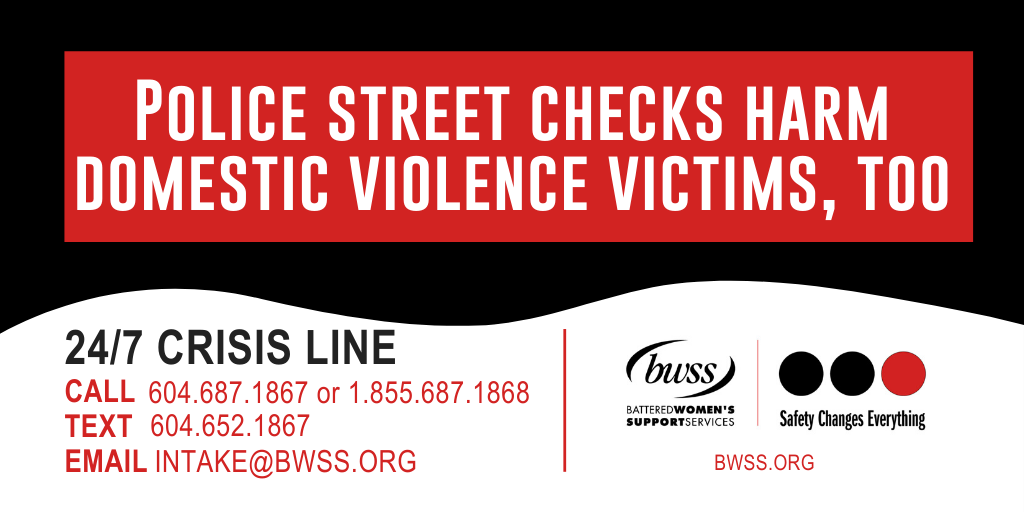
Our relationship with the police as an organization that advocates to end gender-based violence is complicated. On the one hand, institutional systems have made a relationship with the police a part of our equation in addressing violence as funding for organizations like ours is tied to federal and provincial safety because domestic violence is seen as a crime.
On the other hand, the judicial system including police enforcement, are laced with systemic issues that complicates how justice can be served. Police officers may not necessarily follow their own policies and procedures when dealing with a domestic violence case, which renders organizations like ours to call for accountability and advocate for victims. In addition, there have been cases where police officers themselves are perpetrators of domestic violence in their own homes and seldom face consequences, which makes their victims extremely vulnerable in navigating the system, as well as endangering the women they serve. In some cases, police arrest women when they are acting in self-defense.
Our complicated relationship with the police leads us to support movements that work to eliminate systemic issues with the policing system, including ending police checks that harm Indigenous, Black, and low-income communities. According to the open letter signed by more than 70 organization in Vancouver:
A street check is a discretionary police practice where police stop a person in public, question them outside the context of an arrest or detention or police investigation, and often record their personal information in a database. Street checks are interchangeably referred to as carding or police stops. A street check can include recording of personal information upon observation of someone by the police, without any face-to-face contact between the person and officer. Street checks also take the form of wellness checks. Police officers in full uniform and carrying a gun often conduct wellness checks, thus introducing a hierarchy of authority and threat of force.
Police street checks also include wellness checks which have ended up in lethal solutions by the police. As an intersectional feminist organization with programs supporting Black, Indigenous, and immigrants of colour, we’ve had experiences with women who have left our office who had been wrongfully arrested and/or questioned for no legitimate reason. Police are making harmful judgments based on how a woman looks when she is just trying to get home after attending programs that support her. She may just be trying to get to her child. She may just be waiting at the bus to get to her next destination. Either way, she gets stopped by the police and she happens to be a Black, Indigenous, or immigrant of colour. Police are supposed to be a resource for women who are experiencing domestic violence, but street checks are yet another barrier to distrust the police systems.
And we have to ask, why don’t women want to call the police?
Denying these harms enacted by the police further victimizes community members including women in abusive relationships who have been placed on the margins by human-made policies.
Human-made policies should centre humans. They should not further put people at risk and exacerbate the current inequities that plague our streets and homes.
We join our community members, as one of the more than 70 organizations, in calling for the end of police street checks. Please find out more and support us in fighting for safer, equitable communities by signing this petition.
If you would like to speak to Vancouver City Council, you may request to speak for the July 21, 2020 meeting when the agenda is live.




